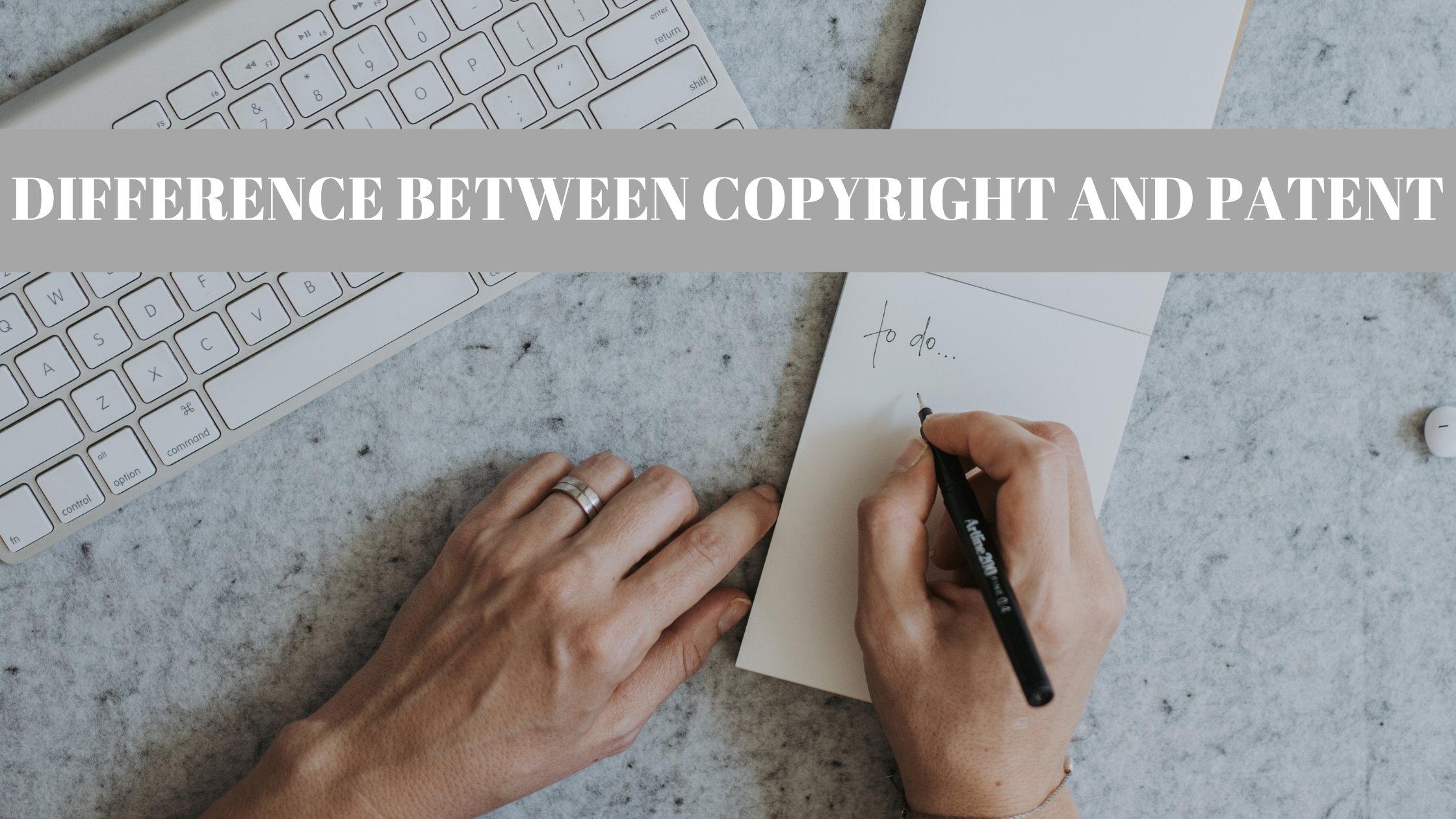There are various kinds of intellectual property such as Trade secrets, patents, trademarks, and copyright. However, it gets confusing to understand what exactly each type of IP offers. So understanding the distinction between trade secrets, patents, trademarks, and copyrights can be really useful to you in order to protect your rights. This article contains the differences between Copyright and Patent for your better understanding.
What is Copyright?
Copyright refers to something that a person makes originally by themselves. For example, creating music, taking photographs or writing a book, you can put a copyright on them as they are your original work. Copyrights give an individual the right to publish their work and make copies of it publicly. Moreover, since you own the copyright, you can decide if you want to transfer individual rights or even multiple rights to others. In India, many indie artists are getting recognition because film industries are using their songs using this method. You can also decide how to publish the work in public as the copyright owner.
The owners who publish books, songs, articles, choreographies etc. automatically apply the law. Nonetheless, they do not need to register for the copyright, but it is definitely recommended.
Also read : Key Differences Between Civil and Criminal Law
What are the criteria for copyright?
The first and utmost criteria is that the work should be original and related to photography, choreography, sound etc. Moreover, the work should fall under the copyright act according to the laws of the country. The ownership of the copyright also has some rules. For instance, if someone does the work for the government, the government will gain ownership. If the person creates something under the guidance of someone else, he/she will be the owner. Furthermore, the owner will have all the rights to how and when to use their work. They can even issue their work to the public or perform in front of them. The duration of the copyright is usually 60 years after the death of the owner.
What is a Patent?
Patents are somewhat similar to copyright law, but there is a little difference. The inventions are known to be protected by patents. Fresh and new manufacturing techniques or making more updated versions of the already existing are a few examples of the inventions. To gain certain rights, patent law encourages the creators to show their inventions to the public. Although obtaining a patent is very hectic, we highly recommend it. It might be very costly, time consuming hence, you should take the help of an expert regarding this.
Different types of Patent
Product patents are when a person invents an object and then gets the physical rights over it but not over the process. Then there is the Process Patent, in which the process through which an object was made is safeguarded by the patent. Furthermore, there are secret patents, which means that if the government thinks the object is important for the country’s defence then they can choose to apply for a patent over it.
Also read : Section 104 IPC : Right of Private Defense Explained
Criteria of patent
The basic requirement for the patent is that the product should not have been invented earlier by anyone or been available to the public. The innovations should be creative and useful for the industry. Moreover, if the products are in abstract form and cannot be useful to the industry, they cannot be protected by the patent. Nonetheless, the patentee has all the rights to sell or distribute their products and can also transfer all the rights to someone else if they want to. If anyone tries to copy their rights, they can easily sue them as well.
Copyright vs Patent
Several types of content can protect themselves with both copyright and patent. For example, there are many computer programs which can have protection of both. In this way, the patent system enhances copyright protection by offering protection for software’s functional features that aren’t covered by copyright.
Conclusion
Lastly, it is important to know the difference between copyright and patent to protect your property better. Copyright is a law that protects creators of original work, allowing them to determine how they use and distribute their work (including books, music, and art). Patents, on the other hand, cover innovative inventions, processes and products, granting the inventor rights to use their invention. Software is a perfect example of a product that needs both types of protection. While intellectual property tools can be very effective at protecting your creations, you must first determine what you have created before you can adopt the right approach.
Also read : How to File an FIR in India: A Step-by-Step Guide
FAQ
- 1. Do I need to register to protect my copyright?
You automatically receive copyright protection as soon as you create your work, but it is advisable to register it for legal enforcement in case of a dispute. - How long does a patent last?
A patent usually has a term of 20 years from the filing date. - Can an invention be protected both by copyright and patent?
Yes, you can get copyright and patent protection for certain creations such as computer software.
